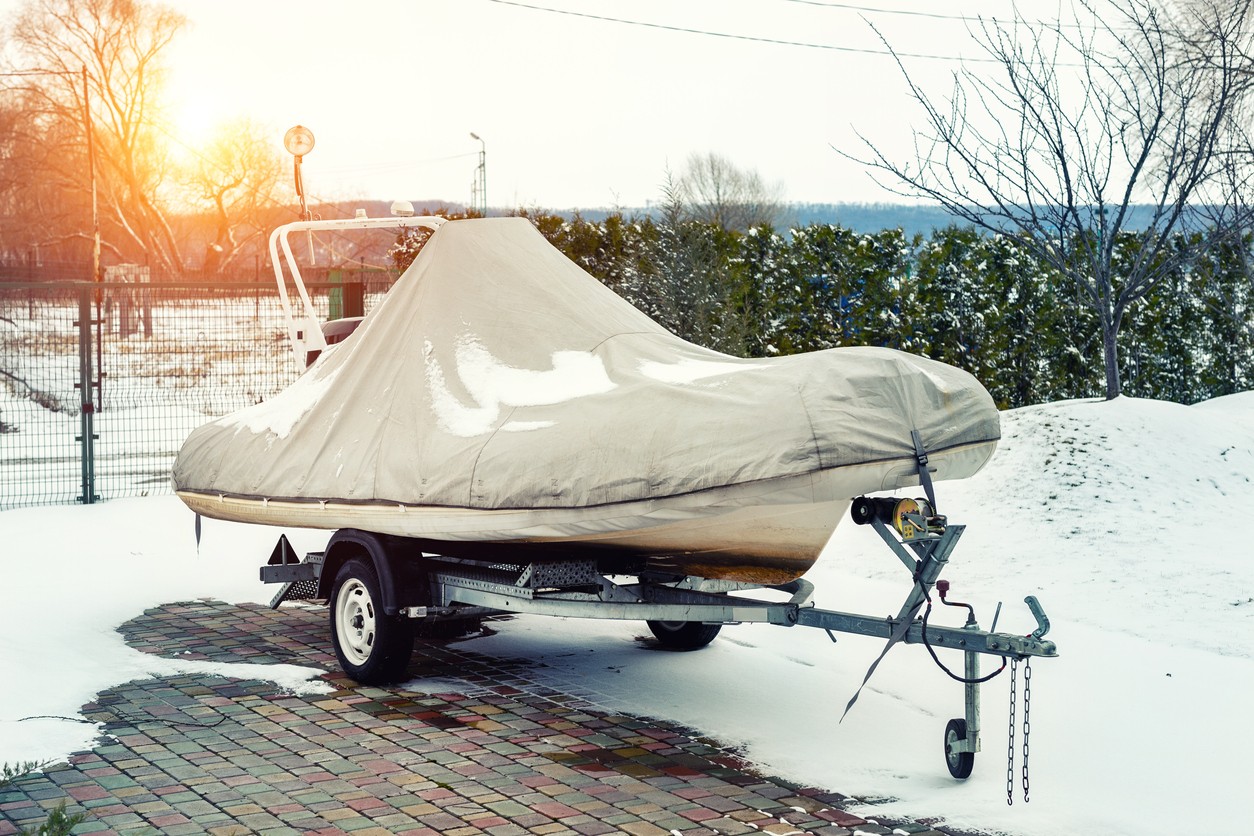
Prevent These Boat Winterization Mishaps
January 18, 2022
Winterizing a boat is standard practice among water vessel owners, or at least it should be. But while most of your clients may know the importance of prepping their boats for the cold season, they may not be aware of the risks that remain even if they do so.
Experienced boat owners know that there is a right and wrong way to do things when it comes to winterization. However, damage and losses could still occur despite their good intentions. While marina insurance will cover some of these risks, it shouldn’t take the place of proper winterization methods.
If you haven’t yet seen the type and extent of damage caused by cold and frost…well, let’s just say that the results aren’t pretty. If your clients are at all interested in preserving the value of their investment, they should know these common winterization mistakes to look out for:
Improper support
Jackstands are commonly used to support boats when storing them away for winter. But neglecting to set them up properly can cause vessels to tip over and fall. This can be avoided by ensuring they are placed sufficiently far out from the boat to maintain proper support. Installing plywood under the base and securing the stands with chains will help prevent slippage.
Leaving the boat exposed to the elements
Pieces of tarp lashed together don’t usually provide sufficient protection against the elements. Trying to cut costs by relying on these makeshift solutions is often a bad move, as they could develop can tears and holes after a storm, allowing ice and snow to accumulate. Using a custom cover or shrinkwrap is always a better solution.
Relying on stanchions for coverage
Stanchions are useful for short-term or temporary coverage, but they aren’t ideal for long-term winter use. Most aren’t designed to bear heavy loads and will likely drive through the deck when burdened with enough snow and ice. For maximum protection, it is advisable to use a more robust frame.
Leaving a powered heater on
Leaving a heater running all winter might seem like a good idea, but it often proves to be a costly mistake. For one thing, powered heaters won’t continue working when the electricity goes out as it likely will during a storm. Secondly, there is a risk of catching fire, which can damage a boat far more quickly than any storm. It is always best to rely on other methods to keep frost from the boat’s sensitive components.
Allowing drains to get clogged
Drains are only effective if they allow water to flow through. Leaving them clogged up during the winter is a recipe for disaster, especially if it allows a considerable amount of water to accumulate where it can cause damage. When storing away boats, drain plugs should be removed, and additional drain holes may be drilled if necessary.
Leaving water in the rudder
The rudder is one of the most important components of the boat, so extra care should be taken to prevent it from being damaged by ice and frost. All water should be removed before the first frost sets in, and drain holes should be drilled to allow it to drain on its own while the boat is left unattended.
Relying on amateurs to perform winterization
Trying to save money by relying on an amateur to handle winterization is another common and costly mistake. If your client can’t do the job properly, they should hire a professional to ensure that everything is done according to industry standards. They might have to pay a little more for the service, but the cost is often worth it to ensure that the vessel is adequately protected.
Winterization is something that your clients should take very seriously, especially if they are concerned about preserving the value of their boats. Whether the vessel is their own or their customers, it is vital to ensure its optimum condition throughout the winter to be ready for use when the spring thaw comes.
Your clients should also realize that winterization should not be put off until the last minute. Taking steps to protect their boats should be done as far ahead as possible to prevent missing crucial steps or procedures.
Perhaps the most important thing to keep in mind is to remove all traces of water from everything that can hold liquid. Water expands by as much as 10% when it freezes and can crack almost any material that contains it.
Following these tips should prevent winter from wreaking havoc on your client’s boats. With luck, they should have a fully functioning vessel in good running condition when spring arrives.
About Merrimac Marine Insurance
At Merrimac Marine, we are dedicated to providing insurance for the marine industry to protect your clients’ business and assets. For more information about our products and programs, contact our specialists today at (800) 681-1998.
